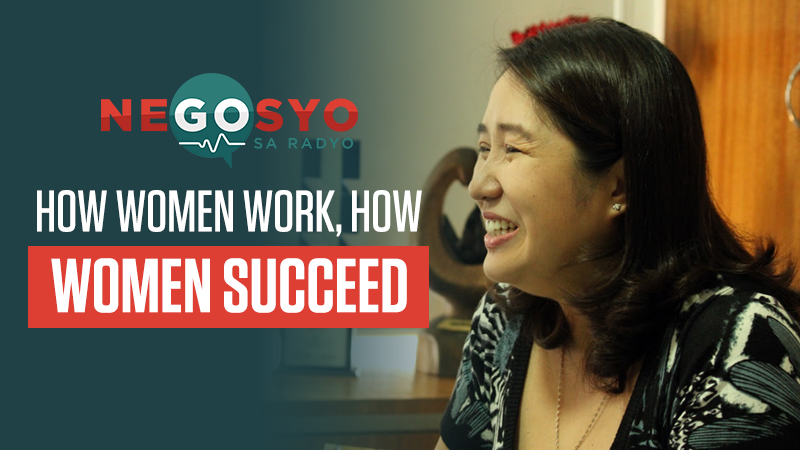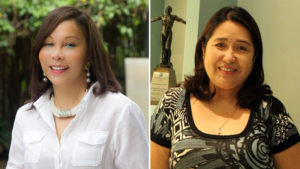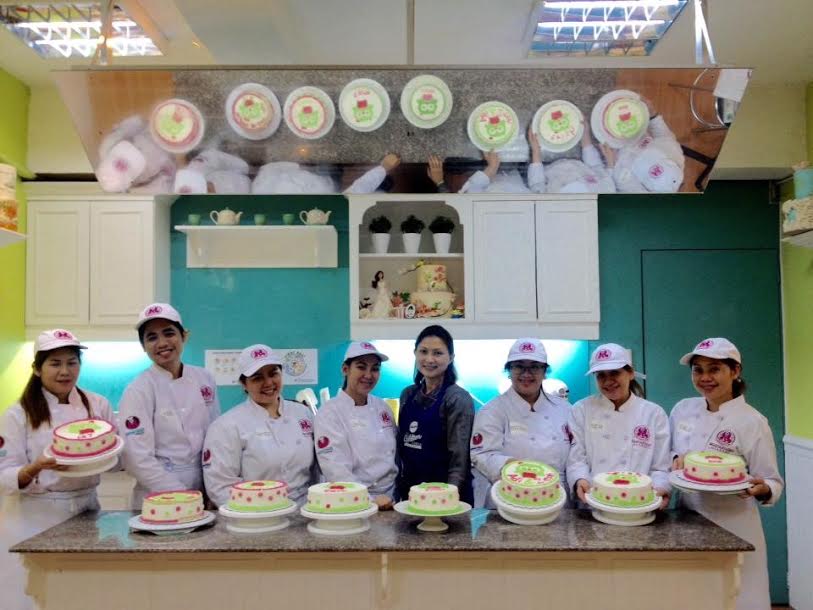
by rossanahead | Mar 7, 2017 | Existing Business
While the term “millennial” is oftentimes broadly equated with words like “entitled“ “spoiled,” and “narcissistic,” many millennials are in fact bucking this stereotype—they are showing in their own special and pioneering way that they’re doing more than their fair share in helping shape a better tomorrow for humankind.
Let’s meet three young Filipinas who are proving critics of millennials wrong as they strive to make their mark as social entrepreneurs in their chosen fields of endeavor.
When she was 13, Mica Tan started trading stocks and at 19, she formed her own distribution business. At 21, she established MFT Group of Companies, a financial holdings firm that provides financial assistance to other companies.
“In just a span of a year and a half, MFT has already undergone a whole lot of changes,” Mica says. “We started with two companies under our belt and now we have expanded to nine and are still growing. Our company focuses on angel investing which provides tailor-made funding to empower, as of the moment, nine businesses (some of them as old as forty years) to achieve their goals. These firms are engaged in diverse businesses and fields including manufacturing, publishing, film production, agriculture, and soon, pharmaceuticals.”
Mica adds that “with every company that joins or opens up to a young group like us, we see it as a way for us to also grow personally and professionally.”
In her first year in high school, Alexandra “Alex” Eduque got involved with Habitat for Humanity through a school project in which she was assigned to volunteer her services in helping to build homes for the underprivileged in a community in Amadeo, Cavite.
The weeklong experience made a huge impression on her, she recalls. “I remember enjoying it so much and finding so much fulfillment in what I was able to accomplish that week, and thought to myself that if I got involved even more and shared more of my time, I would be able to help out even more than I already had.”
“That summer, I took it upon myself to contact the Habitat for Humanity headquarters in the Philippines and a few weeks later, I found myself building homes in Baseco, Tondo, Manila. For two months, I went there every day and engaged in a multitude of construction tasks, alongside making friends with the community.”
From there, Alex has moved on to found her own organizations, such as Move.org Foundation, Inc., also known as MovEd (Molding Optimism and Values through Education), an offshoot of her undergraduate thesis work at Barnard College in New York. MovEd provides early childhood care and development programs in underserved communities through holistic education, providing children with the foundation to succeed in school.
When Tal de Guzman of Risqué Designs by Tal was studying fashion and accessories design, she realized that most Filipino designers were focused on apparel, bags, or jewelry. She noted that Filipino shoe designers were rare, and even rarer were those who used local materials in their creations. She found this scarcity to be an opportunity worth exploring.
And so Risqué Designs by Tal, her first business venture, was formed. “Most brands are content with using conventional materials such as leather, suede, canvas and lace,” she says. “But the Philippines has a rich array of textiles. Risqué uses handwoven fabrics from different parts of the country, but now mostly focuses on the traditional art of hablon-making in Valladolid, Negros Occidental. We not only use this fabric in our designs, but we also help our hablon weavers improve their income—this is part of our advocacy.”
Tal adds that many of her shoe designs are outrageous enough to make people do a double take and question if they are wearable or not (they are). “I like pushing boundaries with my designs, making use of materials in ways that haven’t been used before for shoes,” she says.
Because of her unique designs, Tal has been the recipient of different recognitions and awards. “Somehow it feels like a sort of validation, in terms of the concept and the business,” she says. “It propels me to move forward and do more.”
Photo by Brooke Cagle on Unsplash

by rossanahead | Mar 6, 2017 | business, career, Education, gender equality
Written by Susan Agustin, Go Negosyo
To kick of National Women’s Month, Go Negosyo sa Radyo aired a femme-powered episode on March 1 with two phenomenal women entrepreneurs as guests. Hosts Sen. Bam Aquino & DJ Cheska San Diego-Bobadilla were joined by Emma Imperial of Imperial Homes and Rossana Llenado of AHEAD Tutorial and Review Center. Both have been previously awarded by Go Negosyo (Imperial in 2015 and Llenado in 2016) for being women entrepreneurs worth emulating.
On March 30, Go Negosyo will award another batch of women in the Inspiring Filipina Entrepreneur Awards 2017 which will be held in the prestigious Malacañan Palace. Much like Imperial and Llenado, the women who will be given recognition are those who have sparked significant progress and inspired change in the entrepreneurial community.
Sen. Bam and DJ Cheska began the episode by setting the tone for the listeners. At the end of the hour, they hoped to have uplifted the listeners and opened their eyes to the nuances of women entrepreneurs’ experiences.

Imperial Homes Group of Companies
Emma Imperial was the first to share her story. She is a well-decorated and respected CEO in the realty industry wherein her male counterparts mostly dominate. Imperial shared that at the onset of her career, she had to prove herself as someone worth paying attention to. “Big developers are usually male and the engineers that work for me are mostly male as well.” Despite these odds, Imperial has managed to lead her company to becoming well-recognized globally. With recognitions under her name like Biz News Asia 2016 Entrepreneurship Awardee and Filipina Women Network’s 100 Most Influential Filipinas 2015, it is an understatement to say that Imperial is at the top of her game.
Likewise, her company is equally laudable and has even received international attention. Imperial Homes Group of Companies was awarded by the CEO Asia Awards 2015 as the ADEC Innovation Green Company of the Year, certified by IFC-World Bank Excellence in Design for Greater Efficiencies (EDGE) for Green Building, and recognized by the Financial Times in 2016 as a nominee for the Transformational Business Awards. “You don’t have to be big to be counted in the global community. It’s about innovation and how you believe you’ll help your country; it’s not about the size but the idea,” Imperial shared.
Her big idea manifested when her company decided to construct solar-powered small houses. It was for them, a way to address the backlog of housing in the country as they were low-cost and efficient. In a country where solar power is somehow relegated to more expensive projects, Imperial homes saw the potential for them to be ideal for the provinces where brownouts were frequent. The switch to solar meant that these areas would never have to suffer from power cuts and solar at scale would actually be energy and cost efficient. It was a revolutionary idea: solar power for low-income families. After her company started this project, many took notice. “Ginawa tayong poster child ng World Bank,” Imperial proudly says.
With her story, Imperial wishes to impart to other women entrepreneurs that working in a male-dominated business doesn’t have to be a struggle. Although you have to prove yourself worthy at first, she shares that strict implementation and being consistent with your policies ultimately makes others listen. She’s proud that her organization is now seeing a lot of interest from the youth because the youth she says, are intrigued by innovation (like Imperial Homes solar-powered low-cost houses)
Not to take away from the men in her industry, but Imperial shares that she believes women have more heart than men. “ I had more chances to make my business high-end, but I chose to cater to the low-end group. I can also honestly stop doing business now and I’d be okay but I can’t stop because of my employees.”
She also shares that it’s important for women in business to have camaraderie. She shares that when she was starting in her industry, it was hard to be part of bigger projects because the men would already have a so-called “boys club” and she would be left out. Today, she happily shares that women entrepreneurs have already set-up similar groups to support each other and they often meet about projects related to nation-building.

AHEAD Tutorial and Review Center
Rosanna Llenado was the second guest who shared her story and insights on what it means to be a successful woman entrepreneur. She was named as one of the 100 Most Amazing Filipinas by Summit Media in 2012 and received numerous awards from the Philippine Marketing Association, Philippine Chamber of Commerce and Industry, and Entrepreneur Magazine. Her business, AHEAD is one of the most venerated tutorial and learning centers in the country. As one of the first tutorial centers to offer college entrance exams review programs, Llenado eventually expanded their services to offer a wide range of programs to complement students’ learning.
Recently, they’ve put a center that focuses on teaching Singapore Math— a method that she believes is more functional and practical which eventually makes student’s more proficient at the often dreaded subject. They’re also offering courses on speed reading and mind-mapping which are valuable skills for any student tackling difficult and lengthy reading materials. From a small business started at her home, AHEAD has now risen as the go-to tutorial center in the metro because of its quality and comprehensive programs that position students for excellence.
When Llenado was asked about her opinion on Filipina entrepreneurs, she says that a lot of Filipinas are still scared to enter into business. But what most Filipinas don’t know, she said, is that we’re relatively lucky compared to women from other countries. She discovered this fact when she conducted a research on women entrepreneurs across the world. She found out that the Philippines was ranked #5 on the list of women-friendly countries for business. She further shares that there are some countries wherein women aren’t allowed to have properties or businesses registered to their name and would have to put them under their father’s or husband’s.
She recognizes that there are a lot more women entrepreneurs now compared to when she first started AHEAD. But she says that despite this increase, women will still encounter struggle or discrimination, especially when they’re just starting out. “I also had an experience when I struggled with doing business as a woman; I was invited to do business with these group of guys.
I noticed one of the men was trying to pulling one over us, and I called him out. They eventually met without me and kicked me out. True enough, that man I called out did deceive all of them.”
Despite the welcome positive change of more women entering business, Llenado wishes however, that more women in our country would hold positions in different boards. She noticed that most board of directors and trustees are still predominantly male. “Women can lead. We’ve had two women presidents! And in the senate and company presidents, ang dami rin babae.” So, why should the boards be different, right?
Llenado and Imperial’s stories are just two amongst a plethora of inspiring success stories of FIlipina entrepreneurs. They are a testament to the woman’s ability to lead and succeed. So, if you’re a woman, currently aspiring to turn that business dream into reality, but afraid to start, here are choice words from our two guests yesterday:
“Do things for the greater good of the country. Imperial Homes never really intended to become a social enterprise, but because we had the heart to think of the communities that other competitors weren’t thinking of, we were able to distinguish ourselves from them. We profited of course— but that naturally follows when you do good work” – Emma Imperial
“If you don’t know where to start, ask yourself— whats the right business for me? ano ang kailangan ng kababayan ko? If you can answer these two and somehow the answer is one thing then that’s a good place to start.” – Rosanna Llenado

by rossanahead | Mar 1, 2017 | business, Business Tips, career, gender equality, Recent Posts
Times are definitely changing—for the better—for women. We can now aspire to be anything and everything we want to be, especially in the professional and business world, and we’re more likely to succeed too. Women have been elected president of a country, been named CEO of a conglomerate, become a much sought after motivational speaker or financial guru.
But, admittedly, it is still not easy for any woman who attempts to break the glass ceiling. The higher up the corporate or business ladder women go, the harder we’ll need to compete and prove ourselves in a still largely male-dominated world.
So how do you make it in a room filled with men? Here is a seven-point action plan you can adopt in your fight for recognition, promotion, or excellence in your chosen profession or industry.
Create a strategic plan. Don’t just passively wait to be noticed. Instead, map out a platform for success and then follow through with your plans. To find motivation, you can study the profiles and career trajectories of women achievers. For example, you can do research on Jessica Cox, a motivational speaker and pilot who was born without arms and who steers airplanes with her legs. Or look up the accomplishments of award-winning Dr. Josette Biyo, the executive director of the Philippine Science High School who has a planet named after her in recognition of her excellent body of work. In your own company, don’t hesitate to ask a close superior or director, both men and women, about their strategy as they moved up the corporate ladder.
Promote yourself. Think of yourself as a marketing expert who needs to introduce herself to a whole lot of people and who has to build relationships. Take on difficult challenges and risks to stand out and eventually get promoted. Consider also serving on board meetings to raise your visibility, and stay active in professional associations and search for leadership roles and responsibilities.
Be proactive. Don’t hinder your own growth by becoming complacent or content. Actively seek training, seminars, and workshops to keep learning professionally and improve your work or entrepreneurial skills.
Find work you enjoy. It may be a cliché, but doing work that truly gives you joy is half the battle. Look for a work culture that complements your strengths, limits your weaknesses, and is easier to endure in times of isolation. You are more likely to stay motivated in the face of gender-related hindrances when you are passionate about what you do.
Develop a plan to counter discrimination. Yes, intolerance still exists today, even in the workplace. Develop a plan to combat discrimination, but remember that not everything that may go against you is an attack on you, so choose your battles carefully. If you have trouble coping, it may be good to seek professional help or advice.
Have realistic expectations. Many women enter the workplace thinking that breaking new ground would be a breeze. When their expectations are not met, they give up or decide to settle for less. Learn to accept that not everything will go as planned, and prepare for setbacks by studying how you can stay strong as you strive to overcome opposition or failure.
Seek mentors. They need not only be your bosses or professional allies, mentors can also be friends and relatives of both sexes who have chalked up outstanding achievements. Look to them not only as individuals who can share their professional skills with you, but who can also introduce you to other people who can help you move ahead. – ED
Photo: UN Women

by rossanahead | Feb 26, 2017 | Existing Business, Recent Posts
For a Physical Therapy graduate to go into the culinary school business may seem unlikely, but as proven by Maggie Uy, it’s not impossible—if you believe in what you are doing and are willing to learn.
Maggie and husband Jan have successfully turned their Monster Kitchen Academy (MKA) from a kitchen studio within a retail baking store back in 2008 into one of today’s leading culinary and pastry schools in Northern Mindanao.
MKA may have been initially established to create a market for their existing Monster Kitchen Store, a retail outlet for baking supplies, but MKA’s eventual growth was driven more by a mission to improve lives.
“We noticed that the home bakers in Cagayan de Oro were so few and there was a need to develop a new breed of bakers,” Maggie explains.
Over the years, MKA has produced thousands of students and changed the landscape for the baking industry in CDO and in nearby towns.
“You will see how home-based baking businesses have evolved—there are pastry shops opening in every corner not just in the city but in nearby cities too and even as far as Davao, Zamboanga, and Tawi-Tawi. We also have students from Manila flying to Cagayan de Oro to study our baking and pastry arts programs,” shares Maggie.
Monster Kitchen Academy has two studio kitchens in CDO, one for baking and one for culinary, and in December 2016, it opened a new branch in Davao City.
Lessons and Challenges
Maggie, who handles the finance and course planning side of the business, admits she has had to learn along the way.
“With little background in handling a school, I was faced with so many challenges like handling the day-to-day nitty-gritty to dealing with different kinds of personalities,” she says.
Initially, company standards and systems were not yet set, making the learning curve very long, she continues. “It was only in the last few years that we started seeking help and hired consultants to guide us in systematizing things and up until now, we are still continuing to innovate and upgrade our standards so that our institution will be far advanced than the rest.”
Her lack of background in baking and cooking also posed challenges which she later overcame. “I had a hard time understanding the system flow of the school. I was familiar with ingredients but I didn’t have any idea about the school’s functions and all.”
To equip herself with enough knowledge, she enrolled with the first batch of their culinary school’s Baking & Cooking Program.
“It was then that I realized three things—what it’s like to be in this kind of industry, how the kitchen dynamics flows, and that there are a lot of things needed to be analyzed and given priority to in the operations,” says Maggie. “With all these, I decided to further enhance my skills and knowledge abroad to better equip me with the things I needed to sustain the business.”
Maggie enrolled in the Wilton Master Course in Chicago and had her Wilton Instructors training in Korea in 2015 and is now a Wilton-certified instructor, a distinction held by only a few in the Philippines.
Over the years, Monster Kitchen Academy has had its share of ups and downs. According to Maggie, growing the business requires being focused on what they’re doing and aligning their operations with the mission, vision, and values of the company. This enables MKA to continuously produce quality graduates, among them some of the biggest names in the country’s food industry.
Partners in Life and Business
Maggie shares the achievements of MKA with husband Jan, who oversees the academy’s direction and growth. “He is the brains behind the academy. He is the one that gives direction to the company. His insights are endless,” she says.
Having your life partner as your business partner has advantages and disadvantages, she states. “We can easily resolve business concerns by quickly addressing the problem without having to get the approval of any party. I can count on him anytime, especially when I encounter difficulty in handling a situation such as manpower and employee concerns.”
As for the downside, Maggie points to the tendency to bring work home and discuss it, which can be very draining and can sometimes lead to misunderstandings and arguments.
According to Maggie, their partnership works because they complement each other. “My weakness is his strength and vice versa.”
She also acknowledges Jan’s steadfast support. “He would always encourage me to attend trainings that are related to the business. He brainstorms with me on how to go about things, like bringing them to the next level.”
Expansion Plans
In the next five years, MKA is looking to continue expanding in order to “monsterize” more people and live up to its mission to improve lives.
Its core products are the Fundamentals in Baking and Pastry Arts and the Fundamentals in Culinary Arts. Also offered are the 12-day baking intensive program, the 12-day culinary intensive program, and a wide array of one-day or half-day lifestyle classes for hobbyists and first-time bakers.
At the helm of these programs are 16 chef instructors who Maggie says were mostly trained by international mentors and who are getting awards in various competitions.
“Running a school is an ongoing process. I give credit to our staff, instructors, and heads who have been working tremendously hard to pursue our mission. Hiring the right people and aligning them with our direction is the key factor in managing a culinary school,” says Maggie.
Asked for her advice to culinary arts students who plan to enter the food business, Maggie shares five tips that could well be the very guidelines she follows—love your craft, be ready to embrace failure, stay hungry for learning, stay grounded, and dare to explore.

by rossanahead | Feb 22, 2017 | Business Tips, Investment, Recent Posts
Whether we like it or not, emergencies happen, and often when we least expect them. But while we can’t always predict or prevent crises, we can definitely prepare for them in advance.
A tire that bursts, a home appliance that malfunctions, or a minor injury that needs immediate treatment may hurt but not deplete your purse. However, there are dire situations that can literally empty one’s pocket, such as a serious health issue, loss of employment, or a failed business venture. In these instances, an emergency fund will be most useful.
Randell Tiongson, a registered financial planner, wrote in his book No Nonsense Personal Finance that building an emergency fund is ideally done simultaneously with improving your cash flow (finding ways to earn more and spend less) and getting out of debt as much as your resources permit.
He adds that to build a proper emergency fund, it is essential to know just how much you actually spend in a month. Consider all your expenses, check your bills, and record your spending to get a good estimate.
The rule of thumb for creating an emergency allocation, he says, is to put aside an amount between three and six months’ worth of your monthly expenses.
“Three months is good, four months is better, five months will be great, and six months is excellent,” says Tiongson.
He adds that the most common reason to build an emergency fund is to cover a potential sudden loss of income. “I have given countless seminars to employees who went through retrenchment, and the common occurrence among them is that despite their stellar performance, they still lost their jobs,” adds Tiongson.
He also reminds people to exercise wisdom when determining what a real emergency is. “A 42-inch flat LED TV, a laptop, or designer bags and shoes that are on sale is definitely not an emergency—no matter how you justify it!” he emphasizes.
Here, Tiongson enumerates three good reasons to set up an emergency fund:
- To prepare. It is wishful thinking to say that you won’t be badly affected by crises in the future. As you get older, you’ll come across unplanned substantial expenses and bills that you will have to settle.
- To have peace of mind. Having an emergency fund will minimize your stress and worries when something untoward does happen.
- To reduce risks. With an established emergency fund, backed by life, non-life, health, and other insurance plans, you may be able to avert indebtedness or even total financial ruin in case of a major setback.
The good news is, as you plan ahead for adverse events that may happen in the future, you develop the skill for making sound decisions that will have a long-term benefit on your life. – Ruth Manimtim-Floresca
Photo: www.tradingacademy.com







